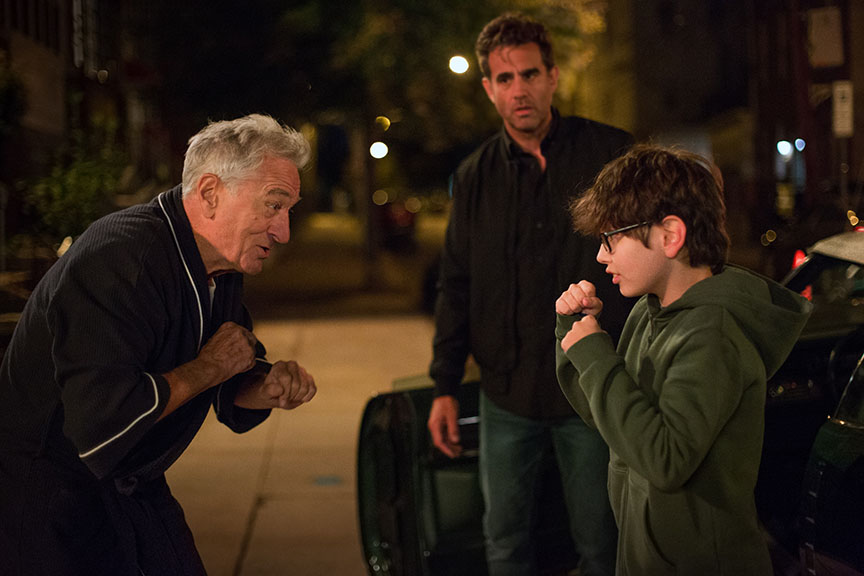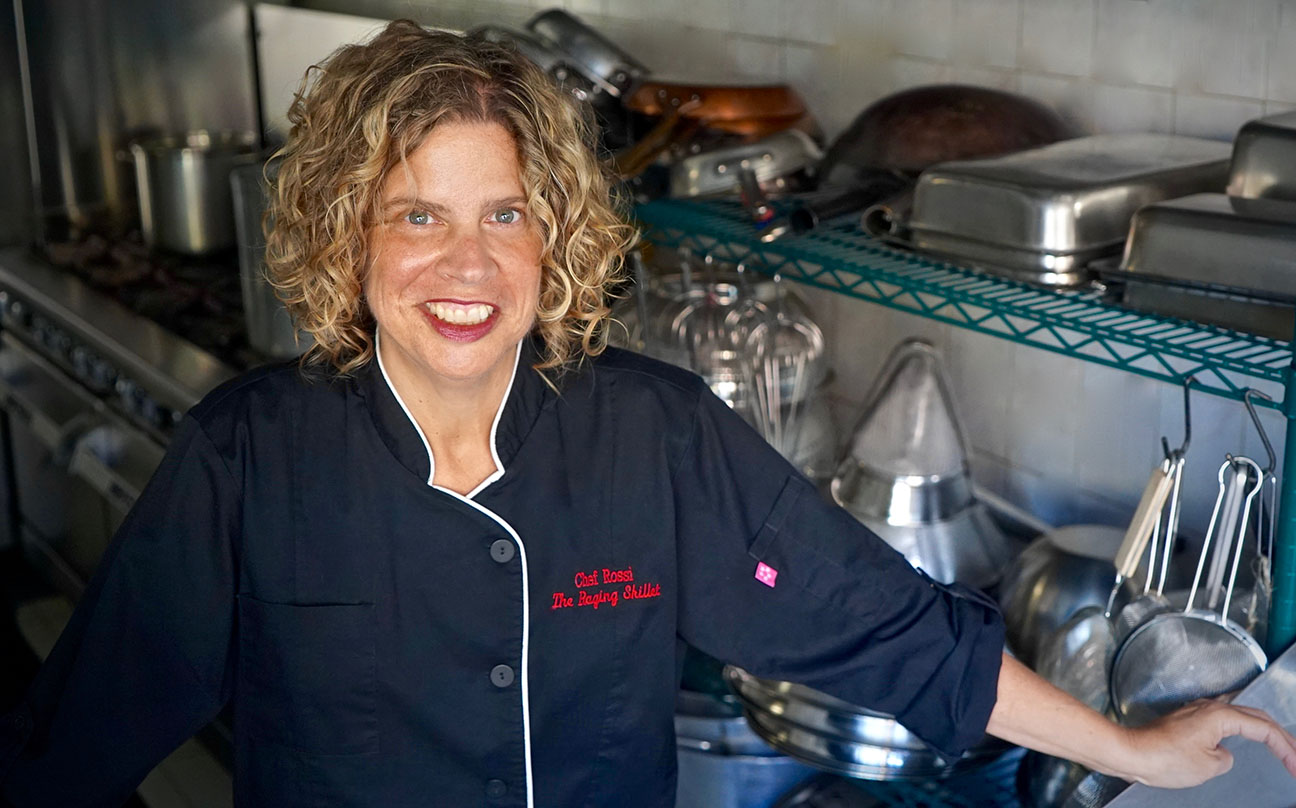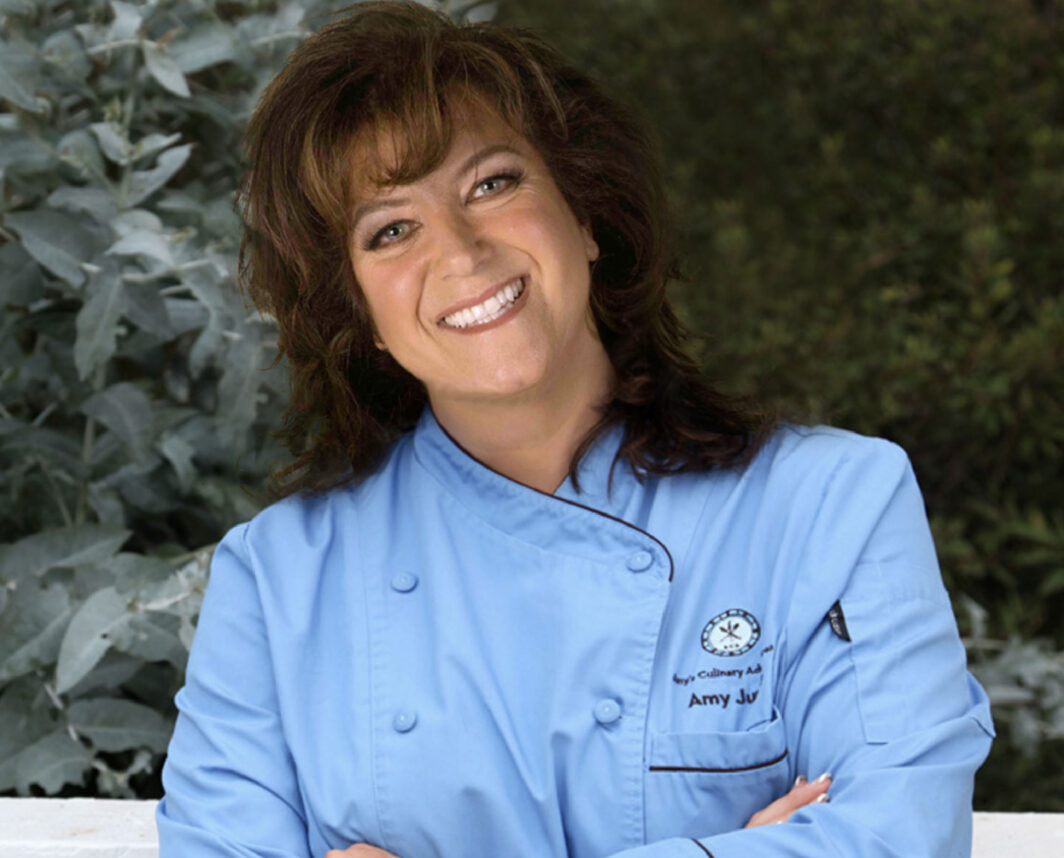 Courtesy Bleecker Street
Courtesy Bleecker Street “Ezra” proves that some fathers will do anything for their sons. When the son is autistic the stakes are even higher.
The movie, which stars Robert De Niro, Bobby Cannavale and autistic 13-year-old actor William Fitzgerald as grandfather, father and son, is part buddy road-trip movie. It also has equal parts how to and how not to parent.
“To me it’s a love story,” Elaine Hall, who, along with Alex Plank, was an autism consultant on “Ezra,” told the Journal. “It’s a testimony of how much we will put ourselves on the line for someone that we love.”
When stand-up comedian Max (Cannavale) and his ex-wife, Jenna (Rose Byrne) are forced to confront difficult decisions about their son’s future, Max (without permission) takes Ezra on a cross-country road trip.
“Having a child diagnosed as neurodivergent is a journey that is lifelong, and it’s a journey where nobody gives you a roadmap.”
– William Horberg
“The road trip is always a metaphor,” producer William Horberg told The Journal. “Having a child diagnosed as neurodivergent is a journey that is lifelong, and it’s a journey where nobody gives you a roadmap.”
While those with an autistic child try to do the right thing, it’s important to remember, there is no one right thing,
“Whether you’re the parent of a neurodivergent child or the parent of any kid, you’ve gone through those experiences of needing to let go and trusting … them,” Horberg said. “And it’s super hard to do.”
Written by screenwriter Tony Spiridakis, “Ezra” is inspired by Spiridakis’ own experiences in parenting his autistic son, Dimitri, while there is plenty of creative license. “Ezra” is directed by Tony Goldwyn, who also appears in the film and happens to be Dimitri’s godfather. Goldwyn, Horberg, Jon Kilik and Spiridakis serve as producers.
“It turns out both my boys are on the spectrum,” Spiridakis told the Journal. “They’re both neurodivergent, and they both needed to go to special needs schools … Like in the movie, I was hell bent on public school being the right way to deal with it.” (Side note: It wasn’t.)
When asked what impact he wants for the film, Spiridakis said he wants people to be more accepting of each other.
“I also want to show parents, of both neurodivergent and neurotypical children, that they will, in fact, make mistakes, and that those mistakes do not preclude them from loving their kids,” he said. “Because, if whatever they did wrong came from a loving place, they need to understand that and continue to further go deeper into understanding their children.”

In the film, Max goes big in the mistake department. The point was to show people what it’s like for a family trying to figure out how to advocate for an autistic child. One of every 88 children in the United States is estimated to be on the autism spectrum.
“I wanted to show a father behaving very badly. but doing what he thought was very good,” Spiridakis said. “Those are contradictory things, I understand, but to me the story was always about doing the wrong thing, so that the right things may happen.”
And, to those who see themselves in this film, Spiridakis said: Forgive yourself, hang in there and find some humor in the situation.
“People have to release the pressure with laughter, and my son Dimitri did that for me,” Spiridakis said. “He would always do something wildly inappropriate, but it would make me laugh.”
Hall said meeting Spiridakis’s Greek family was one of the highlights of working on this film. “They’re just wonderful, but very similar to my family,” Hall said. “I felt at home.”
“I made Max and Jenna a Jewish family originally, because … they were [like] this family that I had known from growing up in Queens,” Spitadakis said. “I remember thinking, ‘Whatever happened to me. I wonder what it would be like in this family that was so close, whose parents had [escaped] from Germany.”
He added, “I felt deeply connected to that, and it was an imaginary way of taking myself out of it and putting it into this other culture, which was Jewish.”
Spiridakis, Goldwyn and the other producers were committed to authenticity in casting the actor playing Ezra, and, Hall said, that’s the way it should be. They needed an actor who is autistic. but could also carry a movie.
“It was also about finding somebody who could tolerate the process of making a movie and create a process that was safe, and that was sustainable for 25 days of shooting,” Horberg said. “To be the focus of attention of, you know, 200 adults every day for 8 or 10 hours a day, requires a lot of preparation and careful thought and planning.”
Hall, who is founder of The Miracle Project, a fully inclusive theater, film and expressive arts program for neurodivergent and disabled individuals, believes they interviewed 85 12 to 15 or 16 year olds around the country for the title character.
“Just the process of that alone made an impact in the autism community, because there were kids who never even thought that they could ever audition for something like that,” Hall said. “By learning the lines and going in and meeting Tony and Tony G, and being treated so respectfully, it changed their lives.”
The popular belief, Hall explained, is that neurodiverse don’t show feelings and are not empathic, but the opposite is true.
“They are the most sensitive human beings on the planet,” she said. “And films like ‘Ezra’ give us a window into that sensitivity and that connection.”























 More news and opinions than at a Shabbat dinner, right in your inbox.
More news and opinions than at a Shabbat dinner, right in your inbox.